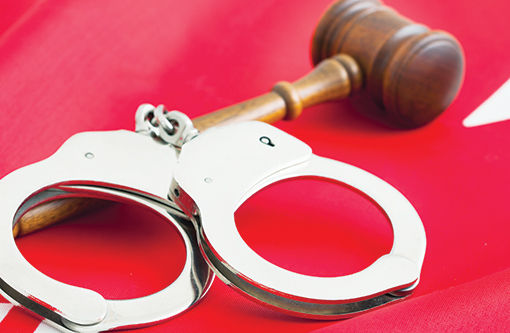LIHUE — The Kauai Crime Task Force is trying again to allow visitors who are victims of felony property crimes the right to provide limited testimony from off-island via live video in court proceedings. The original bill was introduced last
LIHUE — The Kauai Crime Task Force is trying again to allow visitors who are victims of felony property crimes the right to provide limited testimony from off-island via live video in court proceedings.
The original bill was introduced last session by Kauai state Reps Derek Kawakami (Dist. 14), James Tokioka (Dist. 15), and Dee Morikawa (Dist. 16). It would have amended the Hawaii Rules of Evidence to authorize nonresident property crime victims to testify in criminal proceedings by a live two-way video connection.
The Kauai County Council wants the state to reconsider the proposal. It voted last week 5-2 to include the bill in its recommendations to the 2015 Legislature through the Hawaii State Association of Counties.
“The legal experts need to help us figure out the constitutional concerns and if we can get this passed, we can save a whole lot of money, and the victims can get justice,” Morikawa said.
The objective is to get victims to identify stolen property, and to verify that it was stolen, but many of them can’t afford a trip back so soon just to testify in person. The State Public Defender’s Office in February stalled the bill while it was in the Judiciary Committee.
State Public Defender John M. Tonaki supervises the deputy defenders on Kauai. He said the 2014 bill, as written, was unconstitutional and a violation of the Sixth Amendment and Article I of the Hawaii Constitution. These sections assure a criminal defendant the right to confront witnesses against them in a trial and not to be tried primarily on ex parte affidavits and depositions as evidence.
“Video degrades the ability to effectively cross-examine a witness,” Tonaki said.
He said a jury watching live testimony is listening to more than words, but also determining the credibility of a witness by observing their manner, gauging intelligence, candor or frankness, temper, feeling, or bias.
“It is really difficult to state things in general manner and have it pass the constitution test, and especially with the right to confrontation,” he added. “That is a critical right.”
But Kauai Prosecuting Attorney Justin Kollar said the bill is for cases that require a witness to testify to specific things that do not present an issue of truth. The bill would protect constitutional issues associated with the defendant’s rights.
The OPA does not track cases to indicate how lack of testimony from a visitor defendant may have altered its outcome. However, Kollar said it is an issue that has been a chronic problem in all counties of the state.
The bill addresses serial property offenders who believe they can get away with their crimes by victimizing tourists who live far away, he said. It is a justice issue when logistics, costs, and timing involved in returning from the Mainland for trials and other hearings are prohibitive to the victim and the state.
“We support the bill, which would allow video testimony in limited situations for victims of property crimes that occurred in Hawaii,” Kollar said.
Kauai First Deputy Prosecuting Attorney Kevin Takata encouraged the bill as a member of the task force.
He said it aids in prosecuting property crimes committed against tourists and that ultimately impacts the state’s major industry. He also agrees that defendants have a fundamental constitutional right to confront, and cross-examine witnesses against them.
“However, the U.S. Supreme Court has held that face-to-face confrontation is not an indispensable element of the right to confront one’s accusers,” Takata said.
One exception to face-to-face confrontation is “the hearsay rule.” It addresses circumstances where hearsay is ruled reliable evidence and qualifies as an exception to the general prohibition against hearsay.
“Generally, a witness is prohibited from testifying about what another person said,” Takata said. “However, the rules of evidence recognize numerous exceptions that allow a witness to testify about what another person said without that other person being present in court to be faced by a defendant.”
At the very least, victim testimony is needed to establish ownership and value, and that the suspect did not have permission to take the property, he said. Without video, the witnesses must return to testify and the prosecutor must arrange for them to appear.
The bill dispenses with the face-to-face requirement when testimony is not likely to require intense cross-examination, he said. It is a balance of the rights of the accused, with the compelling interest to allow video testimony in certain situations.
Tonaki said the versions of the bill over time show there are situations where video testimony is objectionable, and the bill does require a two-way video connection for victim and defendant to see one another, but legislation must be crafted to safeguard the right to confront the accuser, he said.


